Everybody has an opinion. Ask anybody what he or she thinks about the price of housing, politics, reality TV or capri pants for men and you're sure to get a biting response. Taste in music definitely brings out the critic in everyone. What is the greatest album every to grace the ears of mere mortals in one person's opinion is the worst example of superficial pablum to another.
A couple of weeks ago, Spin Magazine came out with a list of the top 100 albums of the past 20 years, which created a stir among some of the great minds at MSNBC.com. Cries of "Are you kidding?" to "But what about ... " could be heard around our newsroom. In response, we've asked some of the big brains of MSNBC — who never lack for opinions — to give us their top five picks. None are music critics — just music fans with a bone to pick. We haven't compiled a top 100, rather a sampling of what our editors and writers think.
We've organized them into two categories — more or less mainstream and less-than mainstream. We've also included a mailbag in order to get reader picks, so please send them in and we will post your responses.
More or less mainstream
“Fear of a Black Planet,” Public Enemy: Fifteen years ago it was impossible to discuss “Fear of a Black Planet” without getting into a lengthy debate about the controversies Public Enemy’s members were embroiled in at the time or comparing it to their previous release, “It Takes a Nation of Millions to Hold Us Back.” Now free from that framework, “Fear of a Black Planet” stands as the highpoint of hip-hop, with solid beats and samples that only barely betray their original sources. Chuck D’s words feel just as urgent today, daring the listener not to react. Plus, the annoyingly catchy-but-brilliant “911 is a Joke” reminds the world how awesome Flavor Flav was before the realm of reality TV claimed him. — Ree Hines
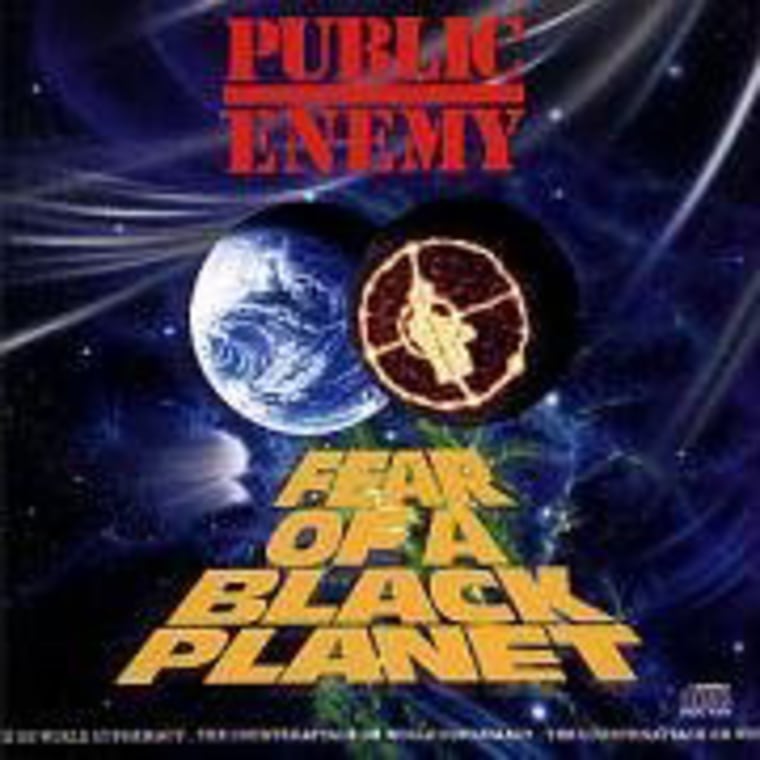
You can debate whether “Fear” is angrier than “Takes a Nation of Millions,” but by this point, Chuck D. and Flava Flav had established themselves as four-star generals in the war against pop music’s profound blandness. It’s easy to tap into the surface rage in a track like “Burn Hollywood Burn,” but the genius lies under the surface. Listening to hip-hop now, it’s easy to forget just how layered, nuanced and utterly brilliant PE’s style could be. — Jon Bonné
“Joshua Tree,” U2: U2 was already putting out good albums before winning a couple Grammys for this one. But “Joshua Tree” just seemed more complete than other greats like “War” and “Unforgettable Fire.” “Where the Streets have No Name” is one of the best songs ever to lead off an album, it sets the mood right away. Several well-known classics follow, but I like the fact that it includes “Running to Stand Still,” which is — in my opinion — one of their most underrated songs. — Bob Harkins
“Graceland,” Paul Simon: My father bought this cassette when it came out in 1987 and I was 15. He would always play it while painting in his studio. I fell immediately in love with the African rhythms and the alliterative lyrics (“The boy in the bubble and the baby with baboon heart ... ”). It was among the first albums I bought as a CD when that format started pushing cassettes out of the market. — Rob Merrill
“Ten,” Pearl Jam: It was this album, not Nirvana’s “Nevermind,” that got me hooked on the grunge scene of the early ’90s. I still think it’s their best album top to bottom. It can be dark and disturbing at times (“Jeremy”), sensitive at others (“Black,” “Release”), but mostly it just rocks. — Bob Harkins
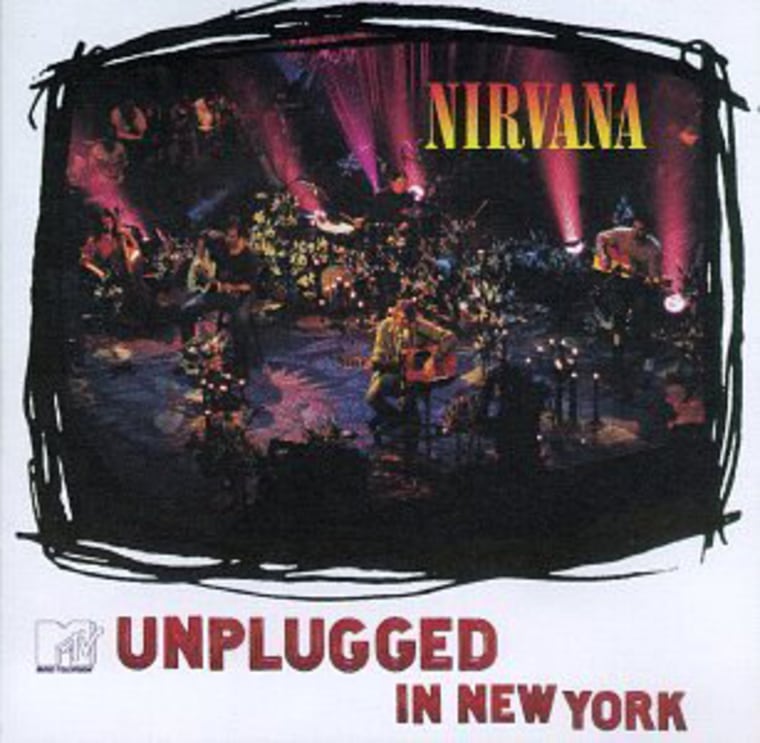
“Indigo Girls,” The Indigo Girls: A combination of crystal-clear harmonies, smart acoustic guitar and clever songwriting made this album such a refreshing change from the album rock and pop that dominated the 1980s, especially to a college student. "Closer to Fine" became an anthem for our sophomore class (specifically, "I spent four years prostrate to a higher mind, got my papers, and I was free"). The songs don't have a lot of clutter like later Indigo Girls albums, relying on the guitars and voices to make the music. I still know all the words. — George Malone
“Paul’s Boutique,” Beastie Boys: I think the thing that separates the Beasties from wannabe hip-hop/rock/alternative fusion bands (a la Limp Bizkit) is that these guys have some soul. They can rock, but they also do a great job mixing their own funky grooves with borrowed samples, without making it seem like they’re just ripping off old songs (you hear me Puffy?). This album has toe-tappingly good music, amusing lyrics and is really strong all the way through. — Bob Harkins
“Harvest Moon,” Neil Young: Neil is such a consistent stream of talent and tenacity throughout my life of listening to music that he would be at or near the top of any list and "Harvest Moon" remains his best work of the past two decades, although 1985's "Old Ways" gets an honorable mention. — Mike Stuckey
“American Recordings,” Johnny Cash: Nearly 40 years after making a name for himself in the country music world, Johnny Cash released “American Recordings,” a bare-bones folk album that played almost exclusively on alt-rock stations. A mix of originals, covers and live tracks, “American Recordings” offered choices to attract even the most countryphobic audience. The light-handed production of Rick Rubin allowed Cash’s still-perfect voice to be the main attraction with a quietly mixed acoustic guitar as its only accompaniment. — Ree Hines
“Rattle & Hum,” U2: I know the critics hated it in the wake of “The Joshua Tree,” but Rattle hit me harder. The songs have more of an angry edge, with Bono at his preachy best on tracks like “Pride (In the Name of Love)” and “Silver and Gold.” — Rob Merrill
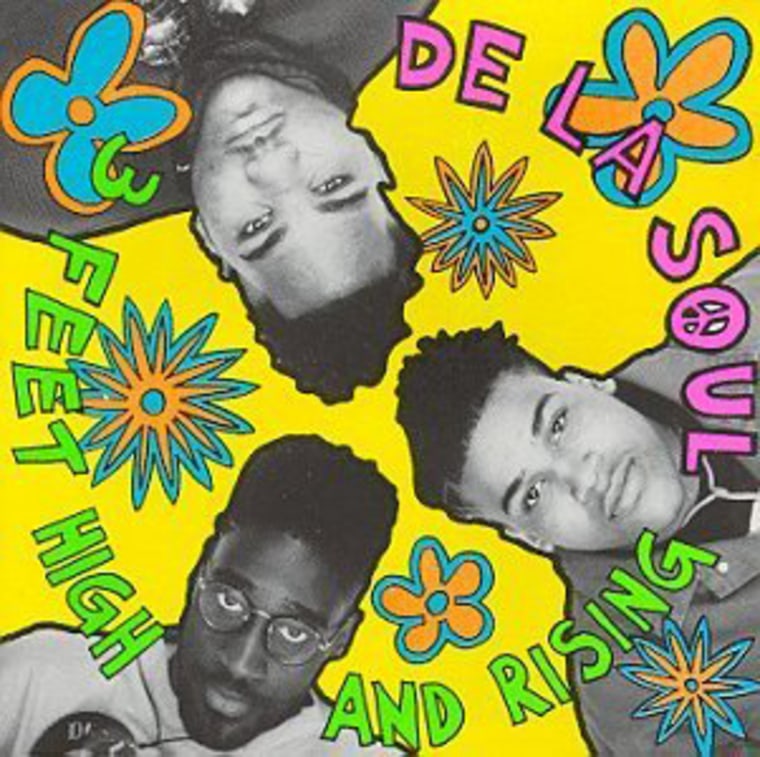
“Raising Hell,” Run DMC: The album that put rap on the map. My friends and I would pop the tape into a boom box and play basketball all day, trying to channel a little bit of its street cred into our decidedly below-the-rim games. To this day I can’t hear “My Adidas” without thinking about the summer of 1986. — Rob Merrill
{
"type": "Slideshow",
"element": null,
"html": null,
"ecommerceEnabled": false
}“OK Computer,” Radiohead: Even if Radiohead isn't the biggest rock band in the world — U2 still holds that crown — they are the best, and "OK Computer" is the best they've put out. Thom Yorke's lyrics do exactly what music and art are supposed to do — reach deep inside and remind you that you've got a soul. It sounds pretentious, but "OK Computer" really is that good. The album artfully waxes and wanes an emotional sea, cresting with "Karma Police" and then exploding with the brash "Electioneering" before easing out with "No Surprises". Looking back, "OK Computer" is a brilliant bridge between the pure rock Radiohead of old and the electronica infused Radiohead of today, with some of Johnny Greenwood's best guitar work before he ensconced himself in his powerbook on "Kid A" and "Amnesiac". This is rock and roll at its absolute finest. — Jim Ray
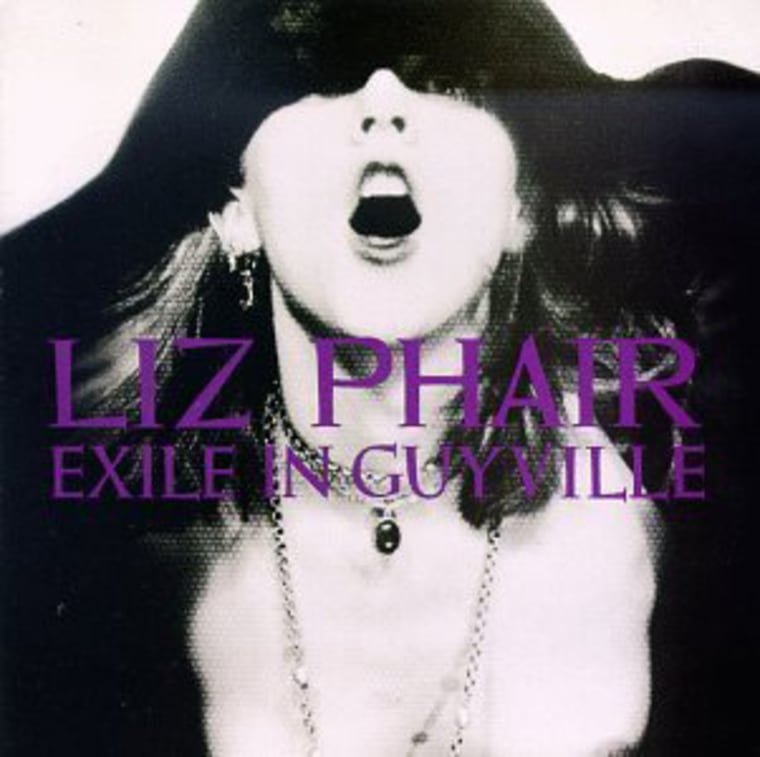
“If I Should Fall From Grace With God,” The Pogues: Not Shane MacGowan’s most soulful work (that would be “Peace and Love”) but the melodies on the title track and gems like “Fiesta” perfectly show off the Pogues’ classic Celtic punk sound. And of course there’s “Fairytale of New York,” perhaps the most poignant Christmas song ever written about the Big Apple. True, the mood is enhanced by an afternoon in a dingy pub, but the Pogues’ unmatched mix of tenderness and cruelty was never displayed better. — Jon Bonné
“The Low End Theory,” A Tribe Called Quest: By the time I got to college, hip-hop had already taken over the Billboard charts and neo-soul artists like D'Angelo were emerging as the crooners of my time. Had I been a few years earlier, though, the playlist at my college parties would've likely been more Tribe, less Wu Tang. Tribe hit the scene as thinking man's rappers, which meant their audience comprised mostly college kids weened on indie rock who were looking to shake their butt's a little bit. Picking up where De La Soul left off as sunnier, though no less real, alternatives to gangsta rap, Tribe built on jazzy musicianship and brilliant wordsmithing to create a truly profound sound. — Jim Ray
Less-than mainstream
“When I Woke,” Rusted Root: I stumbled across this album while browsing in a record store and became interested when I read the sticker, which said “File under primal, aggressive, body-moving acoustic music.” This describes Rusted Root perfectly, who are a little like Dave Matthews, only more ... hippy? “Send Me On My Way” was their hit, I guess, but there are several interesting songs. If you get a chance to see them live, go! — Bob Harkins
“Diary,” Sunny Day Real Estate: This is it. It’s hard to recall an album that so sincerely expresses the emotion of putting words to music. “Diary,” Sunny Day Real Estate’s first installment in its four-album series, appeared during the Sub Pop explosion of the early ‘90s, winning over metal junkies and would-be emo-rock kids alike. Lead singer Jeremy Enigk’s impressive vocal arrangements and flair for unleashing the unexpected make this CD one of the most influential of its time. From songs like the radio-friendly “Seven” to the eerily beautiful “Pheurto Skeurto,” this disc packs a three-two punch that will leave you breathless. Want to know how emo got its name? Take a listen. — Paul Olund
“Fear of Fours,” Lamb: This British duo’s uptempo mix of trip-hop and torch songs seemed to take the best of British electronica and push it. “Bonfire” added a dose of soul atop the depressive minor-key textures that made Portishead famous. “Little Things” offered all the energy of the Chemical Brothers without the club-boy glibness. With Louise Rhodes' vocals managing to be simultaneously velvety and raw, “Fours” proved just how much long-term talent Lamb had to offer. — Jon Bonné
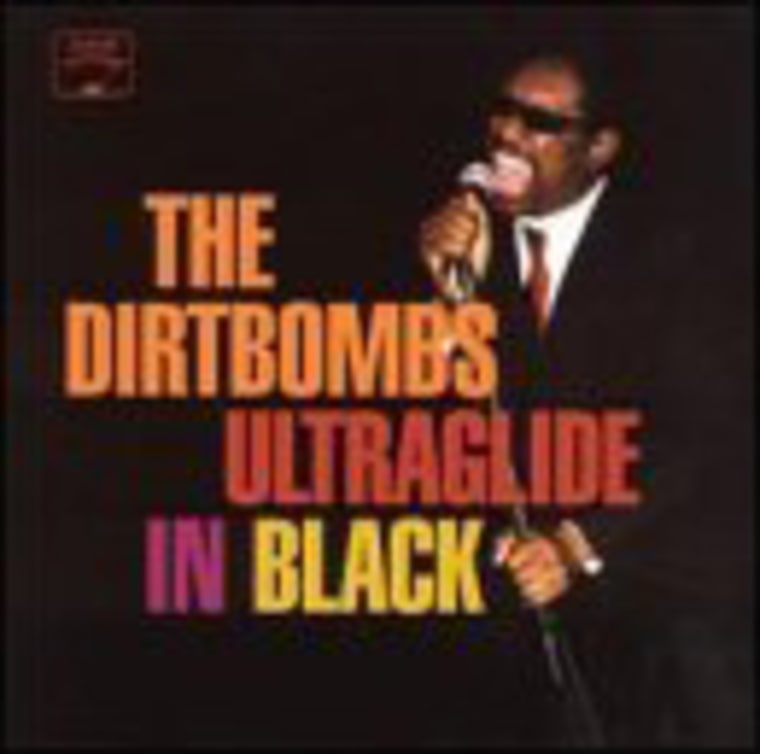
“Tindersticks [II],” Tindersticks: Britain’s Tindersticks has to be the best band that most people in America have still don’t know about. It may take a couple of songs to get used to the marble-mouthed stylings of singer Stuart Staples, but deciphering his lyrics through repeated listenings proves to be a worthwhile, if slightly scary, endeavor. Their heavily layered, dark and romantic chamber/lounge style, perfected on “Tindersticks [II],” doesn’t fit snuggly into any category, but it’s safe to say that fans of Nick Cave, Tom Waits and other purveyors of the moodiest of mood music would find this album hard to resist. — Ree Hines
“Fantastic Planet,” Failure: Ken Andrews mastered the art of mixing-and-matching electronica and rock ‘n roll on Failure’s “Fantastic Planet,” the critically acclaimed 1996 release from the production master who now twists knobs behind the scenes for notable indie acts across the country. Andrew’s magic fingers and classic howl march perfectly in line through this 17 track experimental masterpiece that is brooding, thoughtful and beautiful all at once. While later efforts never matched up to “Fantastic Planet,” remembering the moment in time when writing music meant baring one’s soul, is enough for me. — Paul Olund
“Gravelled & Green,” The Actual Tigers: It’s their first, and unfortunately, only album. The Actual Tigers are sort of a folk-rock-pop band with a tendency toward the melancholy. I’ve most-often heard them compared to Paul Simon, and I think there’s something to that. Regardless, this album is full of catchy tunes accompanied by thoughtful, smart lyrics. — Bob Harkins
“LeTigre,” LeTigre: Front woman Kathleen Hannah’s first band, Bikini Kill, was the nexus of the ‘80s Riot Grrrl movement and the Olympia scene. Their raw punk politics seared a trail for female musicians. These days, chick bands are no longer an anomaly, but a fact of life. Hannah’s second outfit, LeTigre, is the next mighty step in the evolution Hannah helped begin.
On first pass, LeTigre’s self-titled debut is like a shower of giggle-inspired tears from a 12-year-old girl’s first slumber party (with '80s-era MTV on in the background). Once you catch your breath, however, and the synth-pop and hip-hop beats wash over you, Hannah’s politics sink in. Her helium phrasing has a Johnny Rotten sophistication, and her lyrics are just as witty and sly. Soulless rock bands, misogynistic auteurs and evil New York City mayors are all targets of insults so smooth it might take a month for her cuts to finally bleed. Throw in an homage to other female trailblazers with beats you can dance to, and it’s the perfect party mix to your next sleepover. — Helen A.S. Popkin
“Turn on the Bright Lights,” Interpol: Joy Division! Afghan Whigs! The Chameleons! I figured I’d just get that out of the way since nothing ever gets written about Interpol without mentioning all the bands they sound just like. And, well, that’s fair. It’s not their originality that earns their place here. It’s that their spot-on post-punk revival is wildly enjoyable. That, and they make a great cheater pick for someone who listens to way too many tunes from over twenty years ago. — Ree Hines
“Debut,” Bjork: From the first couple of notes on the cheekily named "Debut," you know you're in for something different — after all, "Human Behavior" starts out with the pounding of a huge kettle drum. Different is what the Icelandic pop princess has always delivered, from the beginning through last year's all vocal masterpiece "Medulla." With “Debut,” though, Bjork lets you know that having fun is a full-time adventure for her, an idea that's beautifully captured in "There's More to Life Than This". What you get with "Debut" is the full range of Bjork, from the tinges of darkness on "Human Behavior" to the soaringly happy "Big Time Sensuality". On later albums, Bjork touches on these ranges, like the brilliant "It's Oh So Quiet" on her follow up, "Post", but it's on "Debut" that she's absolutely sublime. — Jim Ray
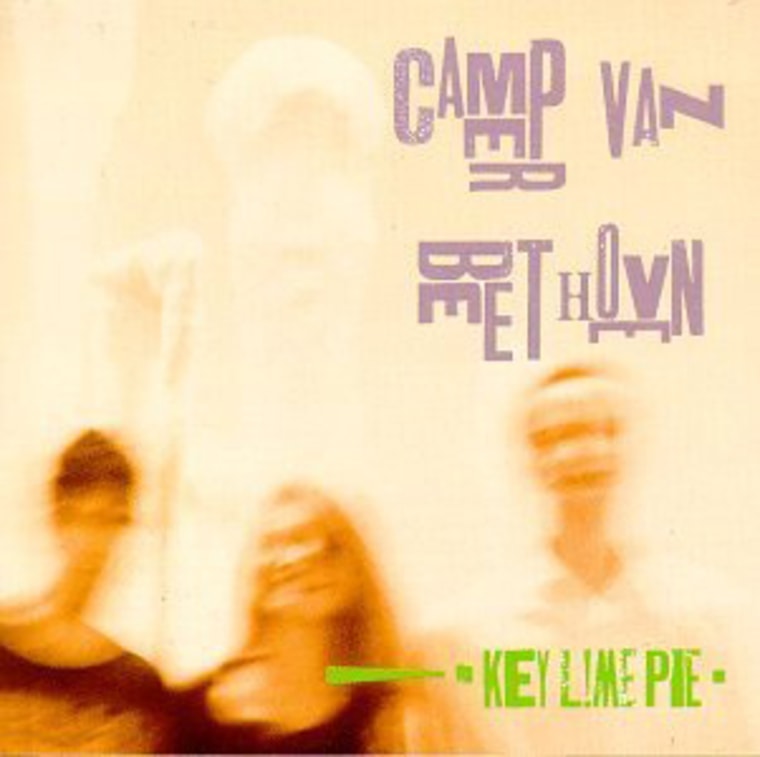
“If You're Feeling Sinister,” Belle & Sebastian: My friend Ben says Belle & Sebastian’s first major release, “If You’re Feeling Sinister,” is great because it “finally gave disenfranchised youth an alternative to the Smiths.” I think it’s more accurate to say this twee folk-rock band from Glasgow, Scotland, gave grownups (who wore out their Smiths records as teens) something to listen to as disenfranchised adults. Songwriter Stuart Murdoch, with his fey vocals, is more puckish than sardonic Smiths front man Morrissey — perhaps closer to folkster Nick Drake. But like the Smiths, Murdoch skips the obvious pop themes, opting for witty, bittersweet songs about “The Stars of Track and Field” and “Judy and the Dream of Horses.” The lush and delicate instrumentation concocts a hazy, otherworldly feel, like a French film in an air-conditioned theater on a hot Saturday afternoon—foreign but altogether comfortable. — Helen A.S. Popkin
“Emperor Tomato Ketchup,” Stereolab: I suspect you’re not actually meant to like all of Stereolab’s music. Each of their albums had flaws, each also contained addictive standouts. Consider how 1996’s “Emperor Tomato Ketchup” effortlessly blends three decades worth of pop, funk and minimalism in tracks like “Metronomic Underground” and “Tomorrow Is Already Here.” (As good as the refined, thoughtful Euro-bop that filled year’s “Margerine Eclipse.”) Inscrutably weird, true, but Stereolab’s ability to synthesize so many styles has long made them my most-cherished band. — Jon Bonne
“Endtroducing,” DJ Shadow: There are some albums that are the product of a given era or zeitgeist, but it's entirely possible that each track on "Endtroducing" is the product of the exact minute that it was produced. On this brilliant debut, Shadow, aka Josh Davis, literally spliced the otherworldly and organic sounds together from taped samples that he scrounged from years of digging through Bay Area record store basements. Unlike so many of his contemporaries, though, "Endtroducing" is still as fresh a listen today as it was when it first inspired an entire genre of hip-hop DJ's to look beyond the emerging bling rap and reach for something deeper. — Jim Ray